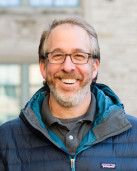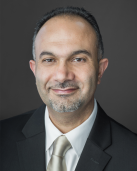
Andrew D. Jacobson
Professor of Earth and planetary science
Director of Graduate Studies
Faculty Affiliate, Paula M. Trienens Institute for Sustainability and Energy
Topic is part of discussions at COP28 climate conference
With COP28 in now in full swing, two Northwestern University experts are available to discuss various aspects of carbon removal.
Chemist Omar K. Farha is available to discuss carbon dioxide capture from its point source, direct air capture and utilization. He can be reached directly at o-farha@northwestern.edu.
Geochemist Andrew D. Jacobson is available to comment on carbon dioxide (CO2) removal strategies, including enhanced rock weathering, ocean alkalinity enhancement and carbon mineralization. He can be reached directly at adj@northwestern.edu.
Farha is an expert in metal-organic frameworks (MOFs), a class of nano-sized materials that are porous and have highly ordered structures. Farha has described MOFs as “sophisticated bath sponges.”
Farha is exploring ways to use MOFs to remove of CO2 directly from ambient air. With U.S. Department of Energy funding, Farha studies the chemical and structural changes that MOFs undergo during the CO2 capture and release cycle. This knowledge, Farha says, is necessary to improve these promising materials for long-term direct air capture technologies.
Farha is the Charles E. and Emma H. Morrison Professor of Chemistry in Northwestern’s Weinberg College of Arts and Sciences. He also is a member of Northwestern’s International Institute for Nanotechnology and Paula M. Trienens Institute for Sustainability and Energy.
Jacobson is an expert in aqueous geochemistry and isotope geochemistry. His research combines fieldwork, laboratory experiments and modeling to quantify chemical, physical and biological phenomena that cycle elements and their isotopes at the Earth’s surface. Members of the Jacobson group study rock weathering and carbon cycling at various locations around the globe. They also study “deep time” ocean acidification events and climate perturbations archived in Earth’s rock record.
Jacobson is a professor of Earth and planetary sciences in Weinberg College and member of the Trienens Institute.
Quote from Professor Jacobson:
“For decades, Earth scientists have studied natural mechanisms that cycle carbon and control climate over geologic timescales. Now, this understanding is being harnessed to mitigate the anthropogenic climate crisis. Multiple scientific, engineering, economic and political challenges exist to test, verify and scale decarbonization technologies within human timescales.”

Professor of Earth and planetary science
Director of Graduate Studies
Faculty Affiliate, Paula M. Trienens Institute for Sustainability and Energy
